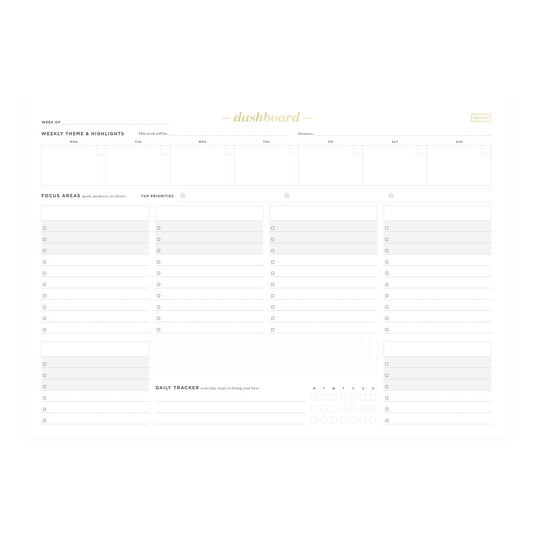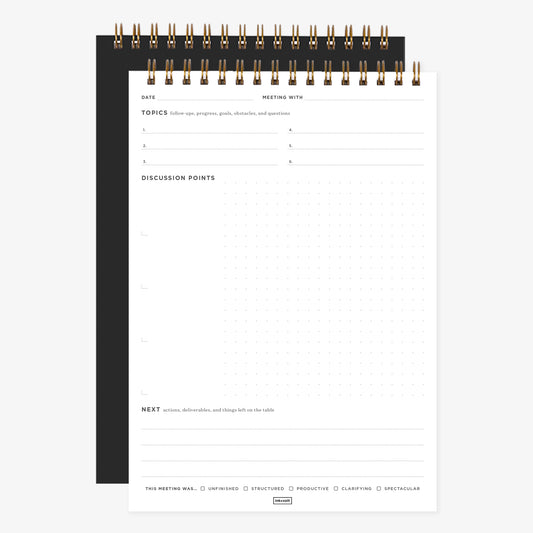We’ve all been there… you take a job for any number of reasons, only to shortly realize that it is not a good fit.
It could be the office culture, fellow employees, management style, work schedule, or a total realization that the job you thought you were perfect for is slowly sucking your soul out of your body. Maybe a life-changing opportunity at another company just came up for you. Maybe something you thought wasn’t a big deal about this job now feels like a huge deal.
Whatever your reasoning, there’s no fault in recognizing you might be in the wrong place. And it is within your power to do something about that.
Starting a new job is hard; there is so much change and there’s often a steep learning curve. We believe in hanging in there and seeing if things get better with time. It is true that time changes a lot of things — and a job that seems impossible today might just take some getting used to until you feel like a superstar.
But sometimes it’s just a bad fit, and you need to go. Here is how to quit a job you just started (if you absolutely need to).
How to tell when it’s just not getting better
It’s really normal to feel like a new job was a big mistake early on. There are so many things to learn and a new culture to adapt to. It can feel like it’s just never going to work.
So before doing something drastic like handing in your 2 weeks notice after just 2 weeks on the job, spend some time getting clarity on what you’re feeling and why.
We’re not trying to sway you from quitting, but instead to dig deep and get clear as to why you feel you need to quit. You need to be sure, since this can be a career-altering decision. It is not one to be made lightly.
Grab your journal and jot down these prompts, giving a quick, off-the-cuff answer for each. Don’t overthink, just write.
- When I took this job, I was most excited about…
- What makes me feel like I want to quit? When did this feeling start?
- What is going well at the job?
- What is not going well? Why does it feel like it’s not going well?
- Have I ever felt this way before? At another job? What happened in those situations?
- Let’s say it were 100% not possible to leave this job right now. What would I do to make this situation better for myself?
Review your answers and try your best to step out of your current thinking and into a less biased mindset.
If, after serious thought, you are sure you need to quit this job, that’s perfectly okay. The important thing is that you took the time to get clear as to why you want to quit this job. It needs to not be a spontaneous, frustrated, heat-of-the-moment decision. It will set the balling rolling for a challenging process (that may have long term repercussions) you want to be sure about before you start.
Quitting varies by industry, but etiquette is universal
Two weeks notice is standard just about anywhere. We all know how it feels to be suddenly left short-staffed, with the remaining team completely overwhelmed by the departing person’s workload. That is not a good way to retain positive relationships at a company after you’re gone.
What’s the point of retaining friendships and connections at a job I’m quitting?
Nothing travels faster than word-of-mouth. And especially if you expect to stay in the same industry or area as the company you’re leaving, it is a very small world.
Preserving your integrity as a worker and as a person should be this highest priority for your “personal brand.” Regardless of your industry, your personal brand is the first experience new people have with you, whether you are present or not.
Key components of your personal brand:
- Your reputation
- Your word and integrity
- Your social media
- Your appearance
- Your behavior and speech
- Your professional experience
- How you present and explain yourself
- What other people say about you
That last one is a doozy. If we were to sum up this article in one sentence, it would be:
Because your personal brand follows you everywhere and arguably precedes you everywhere, maintaining the bridges you built, no matter how frustrated you feel about some of them right in this moment, is paramount.
As soon as you know you’re ready to quit, begin your exit strategy.
Your exit strategy: notice, negotiation, next steps
Notice
Start by speaking with the person you report to – not another employee. Once you know you’re ready to quit, the last thing you want is for your boss to hear it from anyone else.
This is about respect, but it’s also about being able to control the conversation. If you let other people deliver the news for you, there is no way to control how your boss hears about it.
If possible, speak to your supervisor, manager, company president, or other individual in person. Set up a short meeting in their office or in a private company space. Be brief, polite, and complete in your statement of resignation.
Should you be quitting for a reason other than “not a good culture fit,” like racial discrimination, sexual harassment, or any other unsafe workplace experiences, consider ahead of time how you’ll break this news. Any mention of these topics is escalated straight to HR (in a responsible company) and may entail you sitting through interviews, giving statements, and potentially involving other employees.
By reporting this kind of unsafe, damaging behavior, you’re doing your company and your fellow employees a great service. Be prepared that it could be an involved process.
If you are leaving because the job isn’t a good fit for another reason, then the process will be shorter and more straightforward.
When you talk to your manager (and then again, in a resignation letter that you email them after your in-person meeting), be sure to communicate:
- Respect, for their leadership and for the opportunity to work on their team.
- Gratitude, for their understanding of your departure.
- Humility, for your realization that you are not a fit and for the forever learning path you’re on as a professional, to which they were a generous impact.
This is not a time for pointing fingers or making loud complaints. In your initial conversation keep it short and to the point. Don’t expect them to be happy; they will probably be quite surprised and likely annoyed. Remember to think of it from their perspective — you have had time to think about your departure, but to them it will be news. And it will most likely mean they have a lot of work to do to hire a new person and cover your spot on the team.
You can always say, “I know this is probably coming as a surprise, so if it would help I can go back to work now and we can meet again later today or tomorrow.
Negotiation
Depending on how long you’ve been at your job, what your plan is following your departure, and under what circumstances you were hired, negotiation may be necessary.
There are no severance or exit packages for a quick quit. But, the remaining time that you spend at your job may work in your favor if you negotiate adequately.
Consider how long it’ll take you to find and secure another job. If you have another job lined up already (like if you were given an offer by your dream company shortly after starting this job), you might want to try negotiating for a reduced schedule as you close up any projects or assignments and make a faster exit if possible.
Consider if you have the finances saved up to hunt for another job. If you have been with this company for a few months, you might be able to stay on for an extra few weeks to help train your incoming replacement. This will give you time to save up, hunt for a replacement job, and still see the light at the end of the tunnel.
Before you go into your resignation meeting, have your negotiations outlined in your mind. Have a plan A and plan B in case they reject your first proposal.
Unfortunately, in quitting a job, you are not in a great negotiating position, so you shouldn’t expect for any of your requests to be met. Your best defense is to be as kind and flexible as possible, so as to maintain a positive relationship.
Next Steps
Do you have a job lined up? Do you know who you’ll reach out to? Are you freaking out?
Stop. Breathe. Take a moment to clear your mind and prepare yourself for your next adventure.
The best gift you can give yourself upon quitting a job you just started is an action plan for next steps. Create this plan ahead of time — ideally at least a week or two before you go in and give your 2 weeks notice. And act on it as soon as possible once you’ve resigned.
You do not want to end up in this position again by taking a new job that might not be a great fit. You really don’t want to quit a job you just started more than once in your life.
Your next steps might look like:
- Sending out your resume or contacting connections at companies in the same industry as your current company. Be honest with them when they ask about your sudden transition, but don’t bad-mouth your current company.
- Re-working your resume for a cross-industry move. If you find that each like-industry job you take keeps failing you, consider trying something different, like a gap job or cross-industry move. If you’re in marketing, consider working for a small company as their marketing director, rather than going another large firm. If you’re a nurse, consider working for a schedule, rather than another hospital.
- Setting up a website and marketing your skills independently. While it’s not advisable to quit a job and then start a business, having a side-hustle where you make extra cash while working part-time at a less-than-ideal gap job could help you save extra money for a sabbatical.
Once your resignation is set in stone, get started on your next steps. Schedule the activities into your calendar. Make the moves that propel you in a new direction, while still showing up and delivering results at your current gig. Don’t be done until you are really done.
End on a positive note with this job
Nothing says “you’re a sucker who doesn’t matter to me” like blowing off your work as you count down the timer to your exit. Whether you gave two weeks, two months, or two days, it’s up to you to be the best employee and team member that you can be. Your personal brand depends on it.
As much as you may dislike the job, they’re still paying you and expecting you to deliver on what you’ve promised. By fulfilling that expectation, you cleanly close the chapter on this relationship and leave with minimal, if no, ill feelings about the organization.
Contrary to what people in your life may say, it’s completely O K A Y to quit a job you just started.
Of course, no one who cares about you wants to see you throw away hard work, an honest living, a stable job, or whatever they claim you’re leaving behind. That’s why it is so important to be sure — since you don’t want to throw those things away for yourself either.
When you’re clear about why you’re leaving, polite and dignified in your exit, and ready for the next steps, there’s nothing stopping your next opportunity from being the right one.









